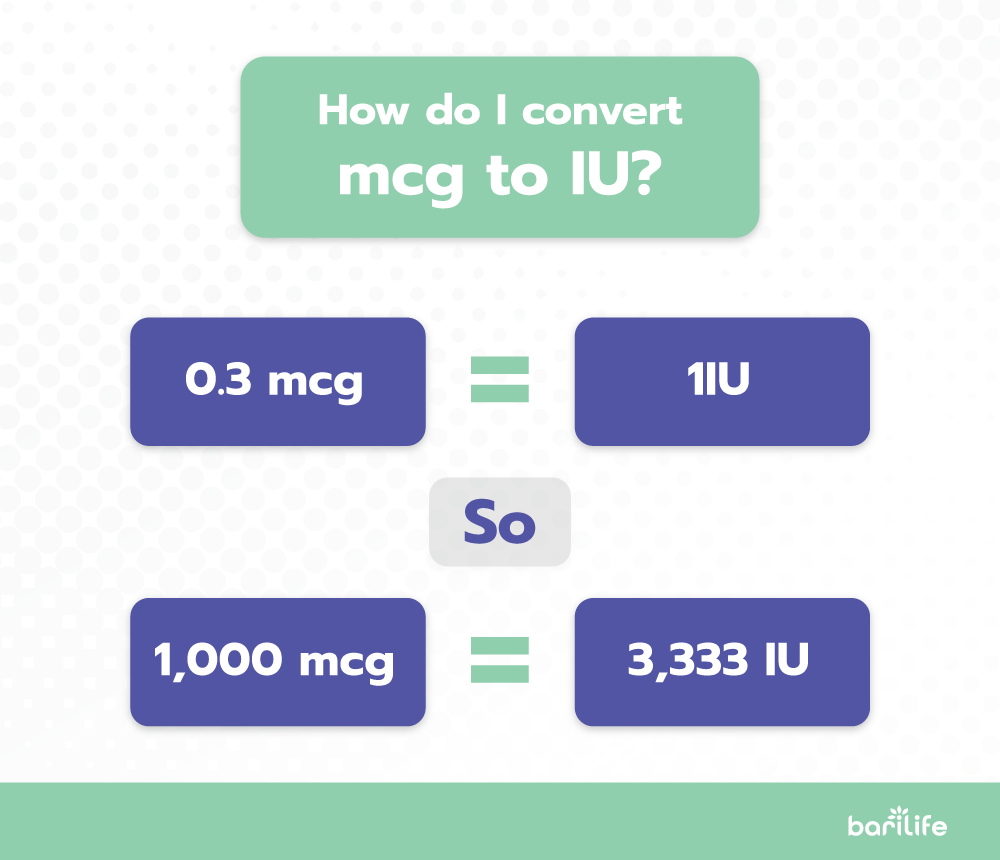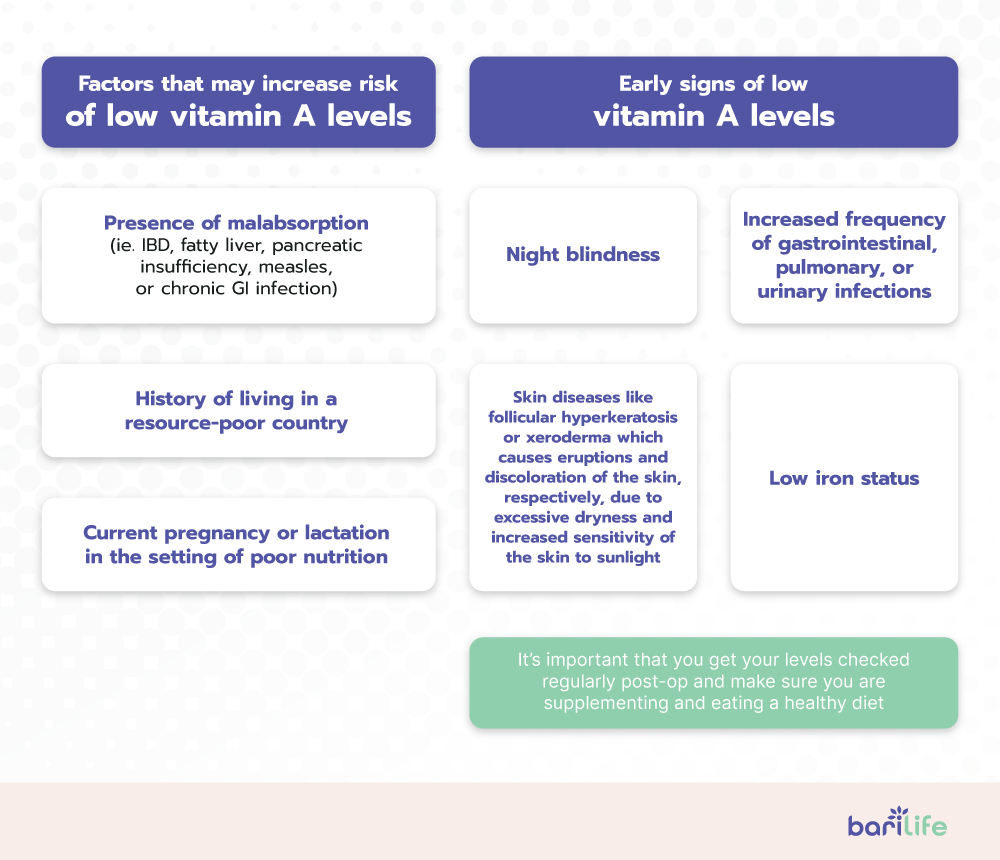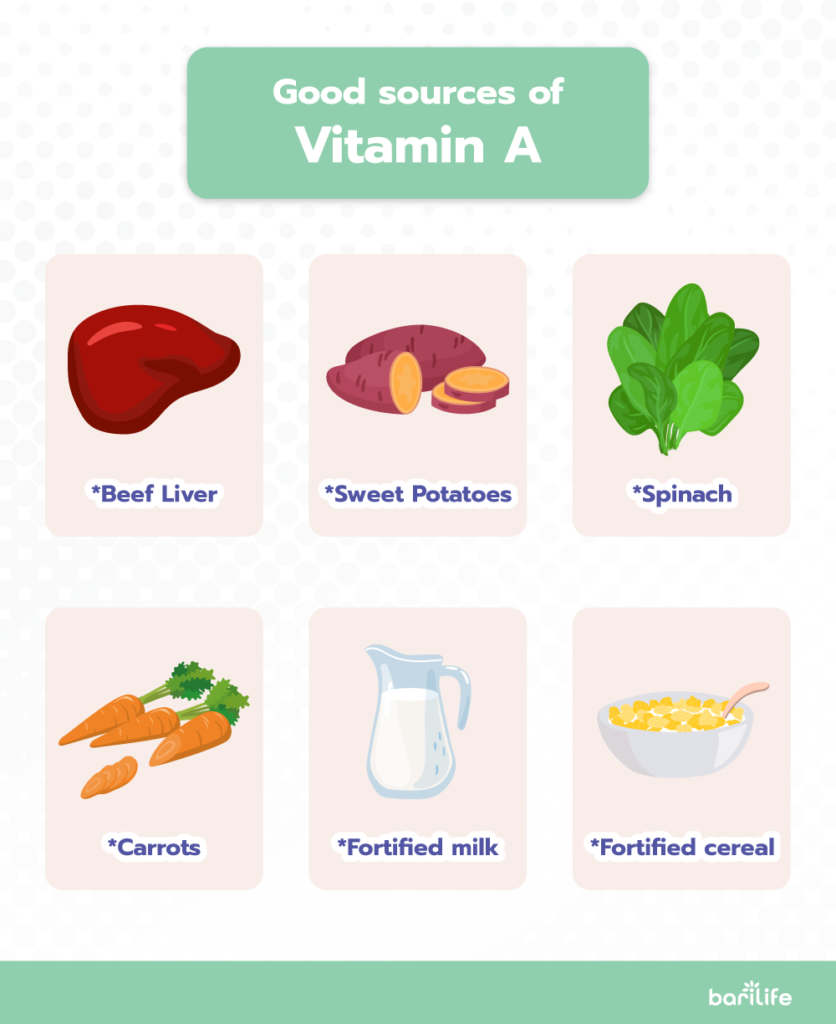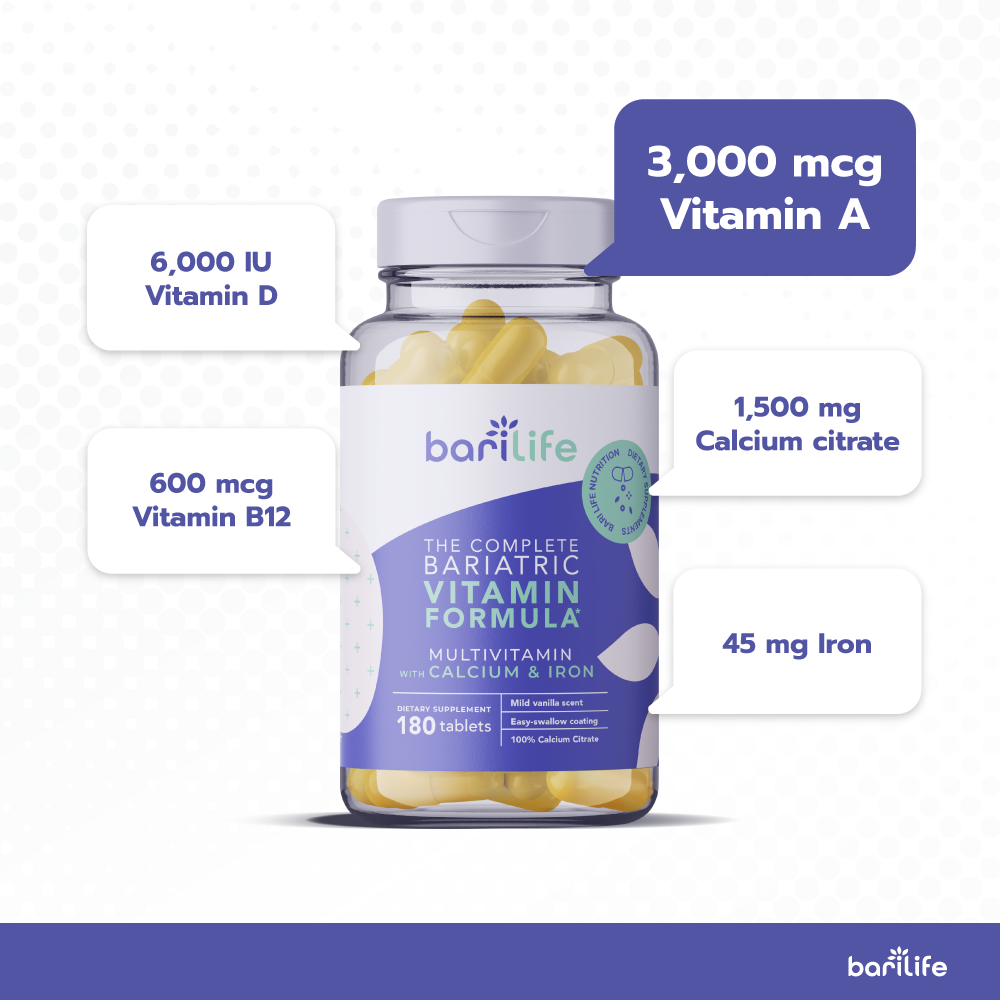Vitamin A is a fat-soluble vitamin that is well-known for its role in boosting vision health. But there is more to vitamin A than meets the eye, literally. Vitamin A comes in two forms: preformed vitamin also known as retinol or retinyl ester (palmitate) which is in animal products like meat and fish, and provitamin A, which is also known as beta carotene and is found in brightly colored fruits and vegetables.
Vitamin A is vital to overall health, especially in those that have had bariatric surgery. According to the American Society for Bariatric and Metabolic Surgery (ASMBS), up to 70-percent of patients that have undergone Roux-en-Y gastric bypass (RYGB) or biliopancreatic diversion with duodenal switch (BPD/DS) surgery encounter vitamin A deficiency within four years of their surgery.
Read below to learn more about vitamin A, how much you should consume daily, signs that you may be deficient, and how you can supplement your daily routine to ensure healthy vitamin A levels today.
The role it plays in the body
Vitamin A plays many roles in the body including vision as well as gene regulation and immune function. This vitamin plays a vital role in cell growth, cell differentiation into their various roles, as well as in the development of T cells and B cells that your immune system needs to function properly.

Also, vitamin A protects the body from pathogens through its role in forming epithelial cells that form the inner and outer barrier in soft tissues.
The ASMBS guidelines for vitamin A
Those that have undergone sleeve gastrectomy (SG) or RYGB should consume between 5000 and 10000 International Units (IU) of vitamin A daily (2). On the other hand, those who have had laparoscopic adjustable gastric banding (LAGB) should consume 5000 IU of vitamin A daily.
Finally, if you had duodenal switch (DS) surgery), you should consume 10000 IU of vitamin A daily. Those who are pregnant should be careful to not take more than 3000 mcg (~9000 IU) of preformed vitamin A since it can increase the risk of birth defects.
Since there are different measures of vitamin A, you should know that when looking at a supplement label, 0.3 mcg of vitamin A is equal to 1 IU of retinol. Therefore, for every 1000 mcg of retinol vitamin A, it’s equal to about 3333 IU. This will help to make sure you take the proper dosage.

Signs, symptoms, and complications that can arise for becoming deficient
When someone is low in vitamin A, it can lead to serious health issues. Untreated vitamin A deficiency can lead to vision issues like night blindness, or xerophthalmia with Bitot’s spots on the eyes, which is a buildup of keratin on the eyes.
Vitamin A deficiency can also lead to intestinal membrane breakdown, which can weaken barriers that protect the body from pathogens. In turn, this can lead to a weakened immune system that can cause more frequent infections as well as anemia (low blood iron) and chronic inflammation. Low vitamin A levels can lead to low iron levels since vitamin A can impact iron metabolism.
Before such health issues arise, there are some signs and symptoms you can look out for that may point to low vitamin A levels. Once you or your doctor see such signs and symptoms, then you can have testing done for vitamin A levels to confirm whether or not you have low vitamin A.
Factors that can increase your risk of low vitamin A levels include:
- Presence of malabsorption such as in inflammatory bowel disease (IBD), cirrhosis (fatty liver), pancreatic insufficiency, measles, or chronic GI infection
- History of living in a resource-poor country
- Current pregnancy or lactation in the setting of poor nutrition
Early signs of low vitamin A levels include:
- Night blindness
- Increased frequency of gastrointestinal, pulmonary, or urinary infections
- Skin diseases like follicular hyperkeratosis or xeroderma which causes eruptions and discoloration of the skin, respectively, due to excess dryness and increased sensitivity of the skin to sunlight
- Low iron status

Those who have had weight loss surgery should have their doctor test for vitamin A levels each year post-op. It’s vital that post-op weight loss surgery patients consume adequate vitamin A daily through food or dietary supplements to ensure optimal health outcomes.
Bari Life vitamins has exactly what you need
If you are low in vitamin A or are at risk of vitamin A deficiency, then you should ensure that you are consuming enough vitamin A daily. You could consume vitamin A through food sources like beef liver, sweet potatoes, spinach, carrots, or fortified milk products or cereals, to name a few.

But if you don’t consume a lot of such foods, especially on a daily basis, then it may be best to take a dietary supplement.
With so many dietary supplements on store shelves and online, you may not know which vitamin to choose, especially for those who have undergone bariatric surgery.
Bari Life vitamins, such as Complete Bariatric Vitamin Tablets, contain 3000 mcg of retinyl palmitate, or preformed vitamin A, along with:
- 1500 mg calcium citrate
- 45 mg iron
- 6000 IU vitamin D
- 600 mcg vitamin B12

This pleasant, vanilla-scented vitamin tablet has a special coating that makes it easy to swallow. And since it contains all the nutrients you need daily post-surgery, you don’t have to worry about taking anything else to help meet your ASMBS-recommended nutrients.
If you’re not keen on swallowing pills, then try the Bariatric Multivitamin Powder that comes in refreshing watermelon or lemonade flavors. Just add a scoop to 8 to 10 ounces of water. Only 1-3 scoops daily, depending on what surgery you received, can provide all the nutrients you need daily while helping you stay hydrated.
No matter how you choose to consume vitamin A, the important thing is that you consume it daily. Choose a form of vitamin A that is easy for you to take so that you comply with regular intake. Once you have found what form of vitamin A works for you, then you are on your way to healthy vitamin A levels for years to come.


What are your tips and tricks to post-bariatric success?